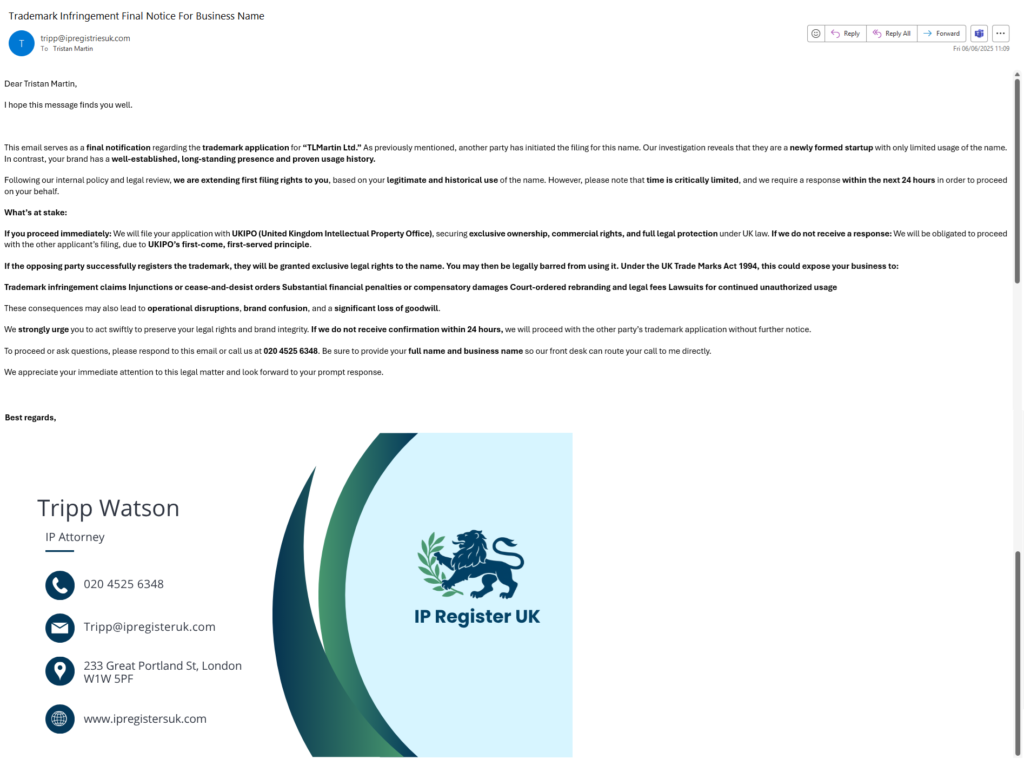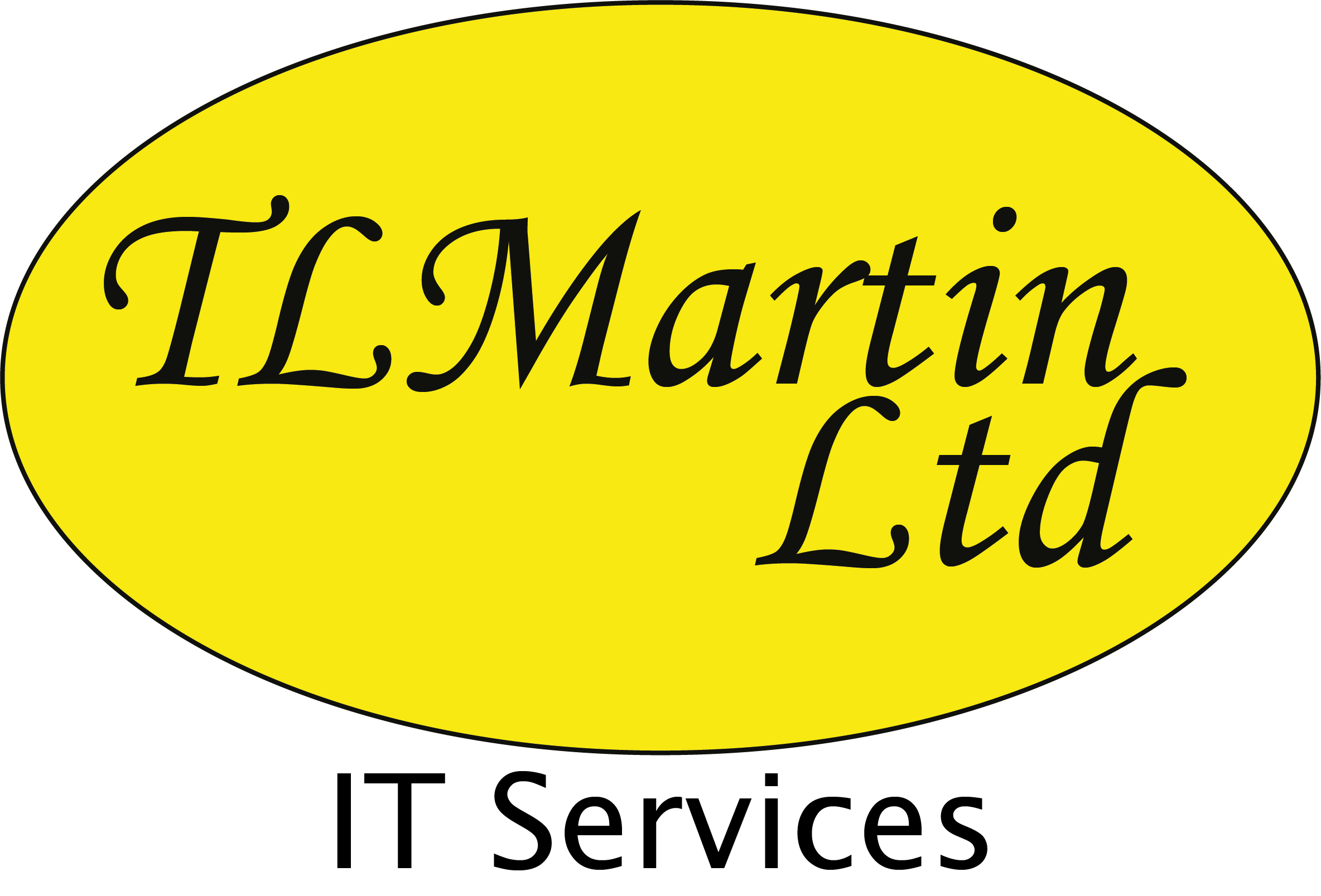There I was, minding my own business and running my IT consultancy like a normal Friday…
…and bam! into my inbox slithers a very official-looking email with red flags waving like it’s a North Korean parade.

“FINAL NOTICE,” it screamed.
“Someone is trying to trademark your business name! But because you’re clearly the good guy in this movie, we’re giving you first dibs. But be quick, you’ve only got 24 hours!”
Cue dramatic music and a lion logo trying its best to look legal.
The sender? A fella named “Tripp Watson” from “IP Register UK.”
Sounds serious, right? Yeah. That’s the point.
🎭 How the Scam Works
These types of scams follow a predictable (and sleazy) pattern:
-
Scare tactics. They email you out of the blue, claiming someone else is trying to trademark your company name.
-
Fake urgency. They tell you you’ve got 24 hours or the other guy wins.
-
Legal language salad. The message is peppered with scary-sounding legal terms like “infringement,” “cease and desist,” “exclusive rights,” and “Trade Marks Act 1994.”
-
Offer of salvation. They’ll “help” you file first, for a fee, of course.
-
Zero actual evidence. No trademark application number. No info about this mysterious other company. Just vibes.
And once you panic and pay them? You’ve just bought an overpriced service (if they even deliver anything at all) based on pure fiction.
🔍 How You Can Tell It’s a Scam
Here’s what separates this nonsense from a real trademark dispute:
-
You were never contacted by the UK IPO. Because they don’t do that.
-
You never hired these people. And yet, they’re acting like your lawyer.
-
They don’t provide real case details. No applicant name, no filing reference, just vague threats.
-
They say they’ll file for you, or for the other party. That’s a massive legal conflict of interest. Any real solicitor would be struck off for even suggesting it.
Bonus: The email signature looked like it was designed in Canva by someone pretending to be a solicitor in between gigs on Fiverr.
🧠 What To Do If You Get One
Okay, so you’ve got a sketchy email in your inbox and you’re not sure what to make of it. Here’s how to deal with it:
-
Don’t panic. These emails are designed to push your emotional buttons. Take a breath.
-
Do not reply. Responding only confirms your details are active — and might invite more scams.
-
Forward the email to us at TLMartin Ltd.
🛡️ If you’re a client, scam-spotting is included in your IT Support or Managed Partner package.
We’ll take a look, verify if it’s real, and tell you exactly what to do.
Because seriously, it’s always better to check than get caught out. -
Report the scam.
-
📧
report@phishing.gov.uk -
If they’re pretending to be a law firm, you can also alert the Solicitors Regulation Authority: www.sra.org.uk
-
-
If you don’t already own your trademark, consider registering it.
You can do this directly via the UKIPO for £170+ at: gov.uk/register-a-trade-mark
TL;DR:
Got an email saying someone’s trying to trademark your business name and you’ve got 24 hours to act? It’s a scam.
They’re not lawyers. They’re not legit. And they’re definitely not doing you a favour.
It’s just pressure tactics dressed in legal cosplay.
✅ Don’t reply.
✅ Don’t pay.
✅ Forward it to us if you’re with TLMartin Ltd — scam-spotting comes with your support package.
Better to double-check than end up triple-scammed.
🧹 Final Thought: Not Every Lion Is Noble
Trademarking your business name is smart.
But being bullied into it by a stranger on email? Not so much.
Scammers are evolving. They’re dressing their nonsense up with logos, fake legal speak, and a false sense of urgency.
But at the end of the day, if you strip away the formatting, it’s just another predator in a pinstripe suit.
So next time someone claims they’re the legal cavalry and only you can stop the IP apocalypse… remember:
-
They’re not your solicitor.
-
They’re not your friend.
-
They’re not even very good at lying.
Stay sharp. Stay cheeky. And if in doubt? Send it to us.
